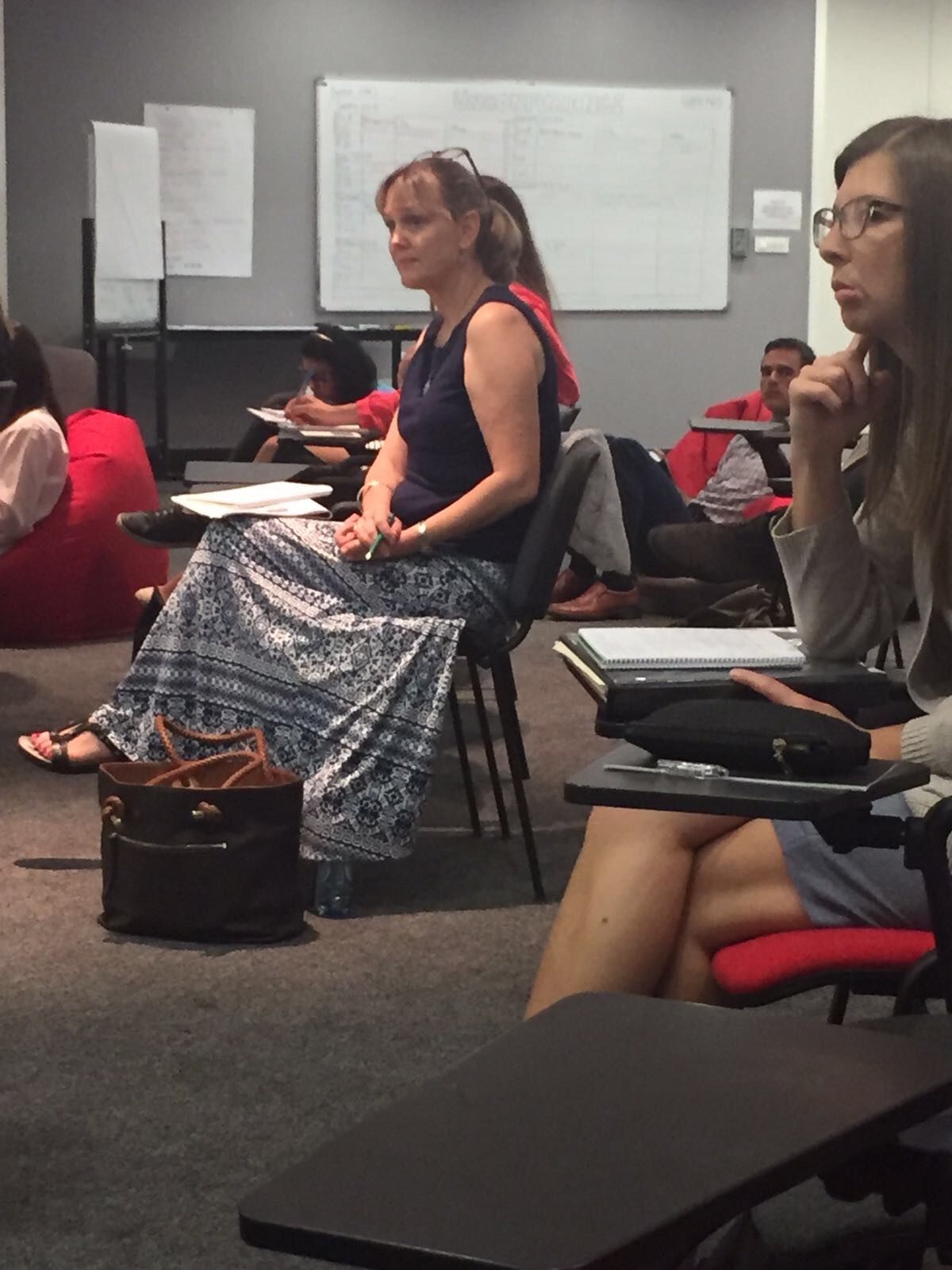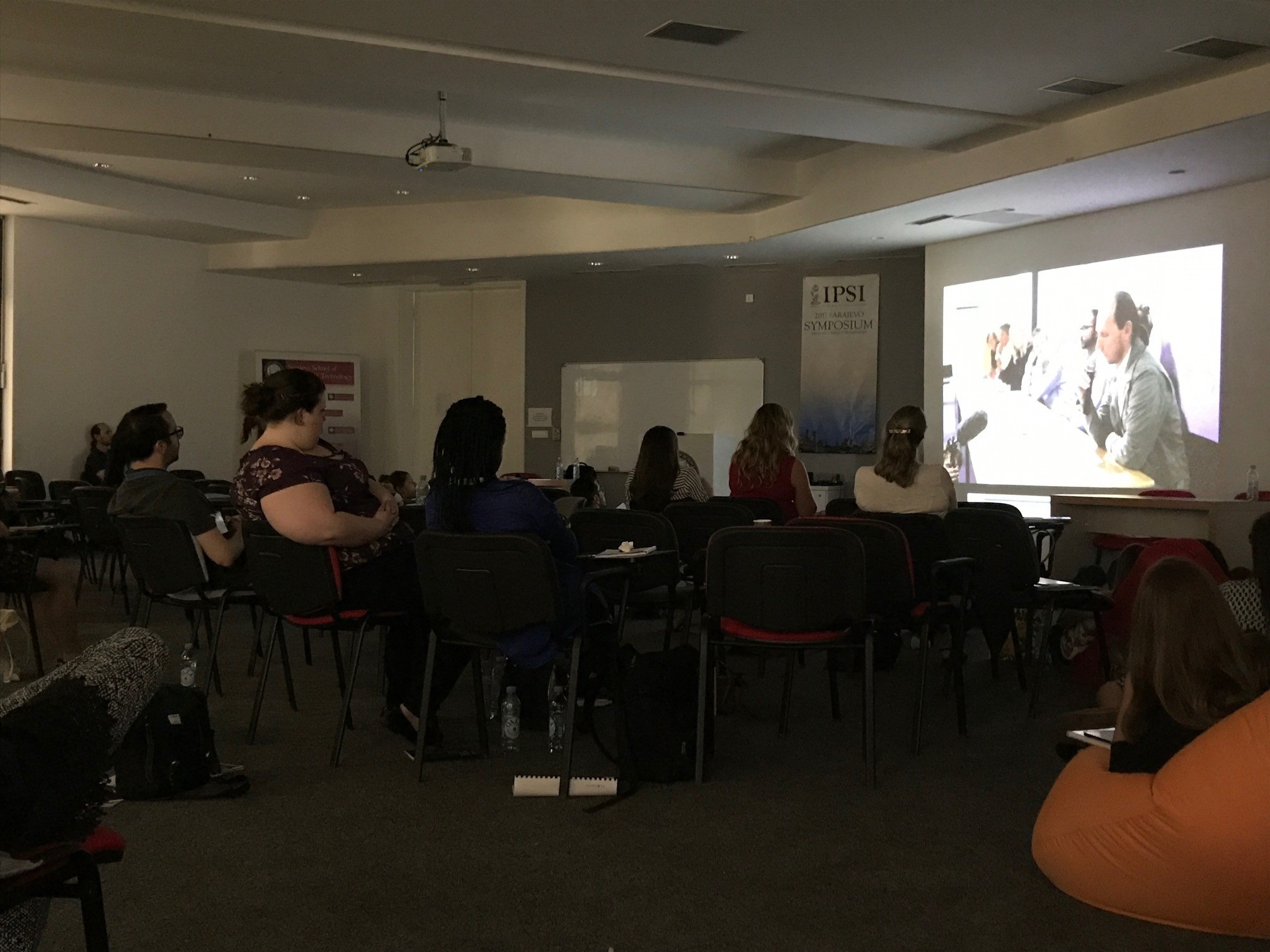
By: Karen Fancher
The film screening of “Pretty Village” was a profound glimpse into the dynamics of reentering a community after suffering mass atrocities at the hands of one’s neighbors. I was impressed by the resilience of those who returned; seemingly strengthened through the act of facing those who had harmed them, reclaiming their land, and reestablishing their lives. Although grief, tension and fear were evident, I was most impacted by the strength and resilience of those who returned. The act of returning in and of itself was a form of confrontation against injustice and impunity. The “lost ones” seemed to be the perpetrators, who now had to live with the reality of the actions they committed against their neighbors, and the fact that those actions had been exposed. Seeing how none of the returnees were seeking vengeance on those who destroyed their homes and killed their family members gave me hope that grace and human dignity can overcome the destruction of hatred and violence.
Kemal Pervanic explained how he has worked through that to come to a place where he could forgive his torturers and see them as fellow human beings. Since being freed from a prison camp, he has dedicated his life to facilitating reconciliation in his community, and especially among the youth. He noted that there was a time when his anger at those who had caused such suffering came to the surface, and he had to deal with it.
Humility, compassion, perseverance and hope allowed him to deal with painful memories in ways that help to foster healing, especially among the youth. At the end of a day filled with pain in confronting the reality of how neighbors had killed their fellow neighbors and abused women and the vulnerable, I wept with hope that compassion can overcome hate, healing can overcome pain, and friendship can defeat mistrust. Healing is not easy, and cannot be rushed or imposed upon another. However, healing is possible and there is hope for the future.


